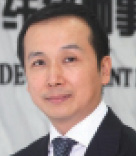The new Advertising Law was implemented on 1 September this year. However, many mistaken interpretations of the new law have been making the rounds in relevant media and online, which have tagged it with such labels as “strictly prohibiting the use of superlatives”, the “strictest in history”, etc. This column mainly proposes to explore how real estate developers should understand relevant provisions of the new law that have been misconstrued in the media.

Kevin Shao
建纬律师事务所
副主任、高级合伙人
Deputy Director,
Senior Partner
City Development Law Firm
No new provisions on superlatives
The greatest misunderstanding of the new Advertising Law is the belief that it sets forth new provisions on the use of superlatives, requiring that, henceforth, the use of such superlatives as “number one, the greatest, the cheapest, the newest, the best selling nationwide, the most popular, the top seller”, etc. is prohibited.
If one consults the new Advertising Law, one will discover that the provision on superlatives is found in item (3) of the first paragraph of article 9, i.e. such terms as “state-level”, “top-level”, “the best”, etc. may not be used in advertisements. However, comparing this to the Advertising Law implemented on 1 February 1995, one will find that item (3) of the second paragraph of article 7 contains the exact same phrasing.
You must be a
subscribersubscribersubscribersubscriber
to read this content, please
subscribesubscribesubscribesubscribe
today.
For group subscribers, please click here to access.
Interested in group subscription? Please contact us.
你需要登录去解锁本文内容。欢迎注册账号。如果想阅读月刊所有文章,欢迎成为我们的订阅会员成为我们的订阅会员。
Kevin Shao is the deputy director and a senior partner of City Development Law Firm
上海市淮海中路283号香港广场南座31楼
邮编:200021
31/F Hong Kong Plaza
283 Huaihai Middle Road
Shanghai 200021 China
电话 Tel:+86 21 5239 3188
传真 Fax:+86 21 5239 3128
电子邮箱 E-mail:
kevin@jianwei.com
www.jianwei.com





























